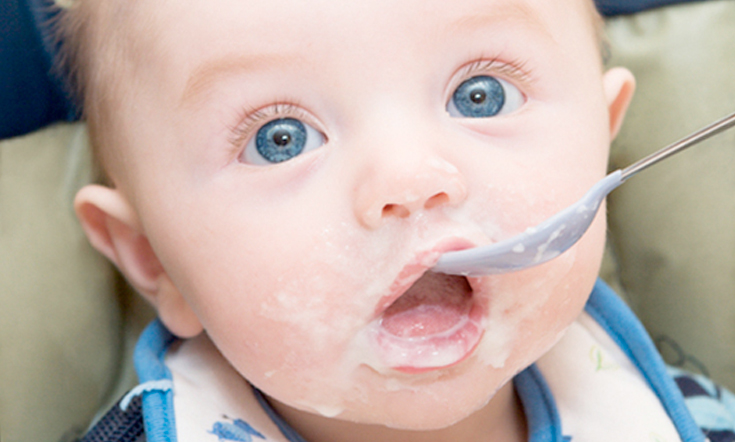

When Do We Start With Solid Baby Foods?
As a baby is born with an open gut, it is vitally important to only provide a baby with solid foods when they are old enough to digest them. Forcing a baby to eat solids too early can affect their digestion, cause stomach problems, and even lead to allergies.
The recommendation from the Dietary Guidelines for Children and Adolescents in Australia is starting a baby on solids from 6 months, with breast milk still being the most important part of your baby’s diet.
Introducing solids to your baby’s diet after 6 months of age ensures your baby receives all the essential vitamins and minerals needed to develop into a healthy child.
Signs that your baby may be ready for solids include:
- never being satisfied anymore with formula or breast milk but always wanting more
- starting to wake up in the night again for extra feeds after having gotten used to sleeping through the night
- showing an interest in the food on your plate
- opening their mouth when offered a spoon
- and the ability to sit upright when supported
Which Baby Foods to Start With
Now that you think your baby is ready for solids, start off simple, introducing each food one by one.
First foods are usually finger foods. Baby food should never become an issue. Let your baby enjoy their first experiences of solids. Although you will be spooning the food into their mouth at first, let the baby paddle their fingers into what’s on the plate. Eventually the baby will become brave enough to take the spoon from you and try to eat independently. Don’t be afraid of the mess. This is all part of the process of learning to eat like a grownup as opposed to a dependent baby. Just have plenty of bibs lying around and change the baby’s clothes after a meal!
Always offer food after a breastfeed.
First foods include:
- mashed bananas
- pureed boiled carrots
- mashed avocado
- apple puree
Once your baby is enjoying these, you can move on to:
- Pieces of chicken. Chicken soup, made with carrots and a little bit of mashed potato is especially good.
- Small pieces of beef – but cut up well, soft, and easy to digest.
- As your baby gets older, try mashed legumes, couscous, mashed and de-seeded citrus fruits.
See video for puree recipe for baby: Apple, pumpkin, chicken puree
Remember not to introduce the following to a baby until over the age of a year, as these are either dangerous to a baby or possible allergens if introduced too young:
- Honey
- Strawberries
- Cows milk products
- Peanuts
Wholesome Baby Food – Jarred or Homemade?
One of the biggest questions is which is best? Homemade baby food, or factory made baby food jars?
If you have the time, the most healthy baby food is homemade. This way, you can control what your baby eats, and they will also get used to your cooking as opposed to factory food. You can introduce your own organic baby food if you want, keep it allergy free if you need, and keep out preservatives, sugars, or anything else you don’t want. By doing this, you are also saving money as baby food prices are quite high. So if you buy your own baby food processor, you will be well away.
For wholseome baby food recipes, click here
For some mothers, this may not work too well. For example, if you have a full-time job and other children, you may not have time to cook individual food and keep washing up the baby food processor all the time. Or maybe you have to travel somewhere, and you don’t have the time or the resources to make your own baby food.
In these situations, you can always buy baby food. There is a whole range on the market, and you are sure to find something that suits you.
As a responsible parent, you will definitely do whatever you can to provide the best possible baby diet, so that they will grow into a healthy child. Good baby nutrition is the foundation of a healthy life.






















